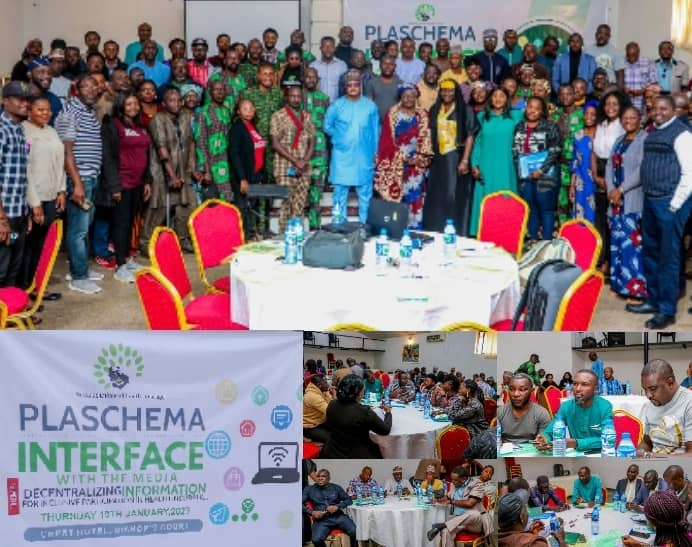In an effort to decentralize health insurance to the grass root the Plateau State Contributory Healthcare Management Agency, (PLASCHEMA) has organized a media interface to find practical ways to promote inclusive participation in health insurance.
The interface themed “decentralizing information for inclusive participation in health insurance” was held at Crest hotel on Thursday 19 January.
Delivering his opening remark Director General of PLASCHEMA Dr. Fabong Jemchang Yildam, said decentralizing information is the best model for inclusion.
which is why the media can’t be neglected as they play a pivotal role in the realization of inclusive health insurance participation, especially in rural areas.
Mr. Yakubu Taddy, the Director of News and Current Affairs PRTV a guest discussant at the event stated that to decentralize health insurance information from the urban areas and corporate sectors there needs to be a clear indication of how many people are enrolled in the scheme and what sector they belong to.
“When there is a proper record of people who are enrolled and adequate feedback from beneficiaries it will be easy to know the gaps that need to be filled.
“The use of local language and simple grammar will go a long way in getting the message to the grassroots”.
Speaking on PLASCHEMA participatory models Solomon Kwakfut stated that the health insurance scheme is not just for rural communities and so the need to adopt models that will improve participation in the grass root.
According to statistics provided by the Director of Operations PLASCHEMA, Dr. Kwande Dawal the number of beneficiaries of the scheme is over a hundred thousand.
Which includes 54,000 state civil servants, 18,129 local civil servants, 542 staff from four private organizations, 546 and 414 persons from informal sectors.
It is on that note that participants were tasked to provide models that will aid people in rural areas and informal sectors to register under the health insurance scheme.
Some of the models suggested include the life of coverage of the agencies activities to be streamed on social media, organizing townhall meetings, online meetings such as twitter space for experience sharing, having social media influencers as ambassadors, enrolment of key stakeholders in various local communities, broadcasting jingles and short drama in local dialects, involving traditional councils, awareness during medical outreach and community programs, use of religious publication and community newspaper, involving beneficiaries in health programs and interviews for every medium and tracking down activities of all stakeholders.

